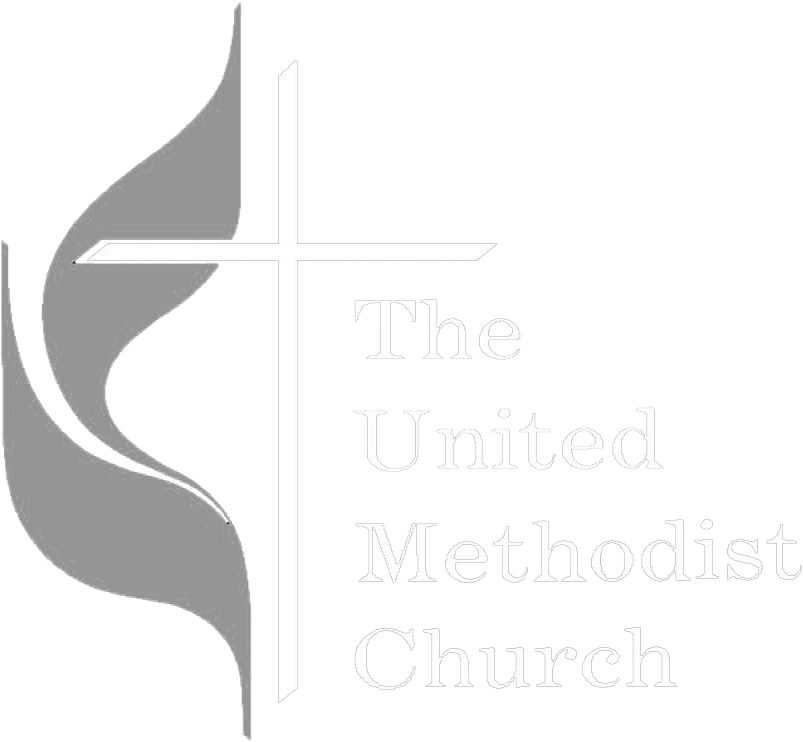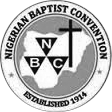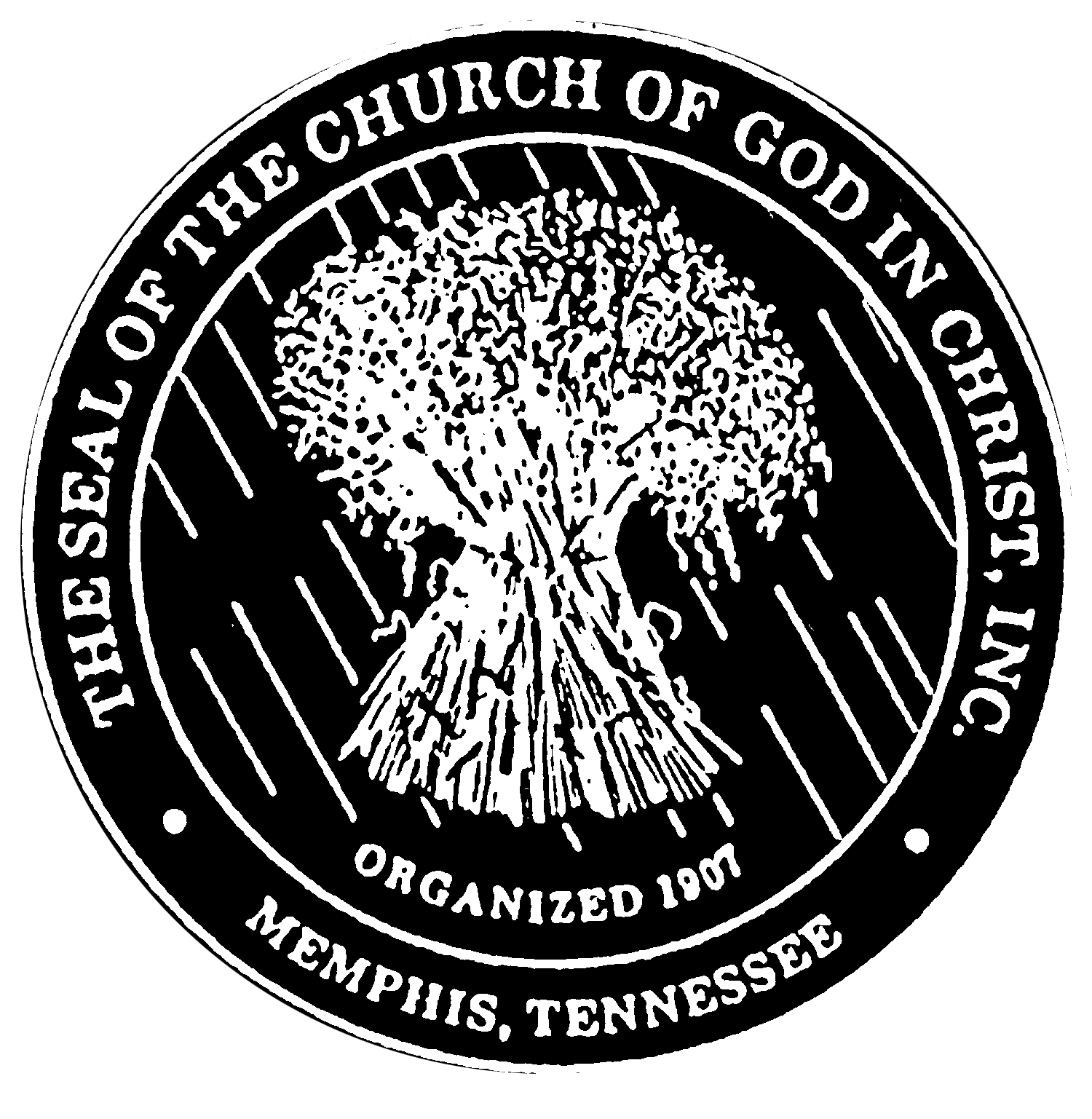ANOINTING: Explication from Scriptures

By: S. Ademọla Ishọla, Ph.D.
Introduction
In recent time, I have been asked copious questions on the subject of anointing:
Is it baptistic to practice “anointing”?
Under what circumstances should one submit to “anointing”?
Which type of anointing oil should be used?
Is it appropriate to dedicate a whole service to congregational anointing?
What is the place of anointing oil in a healing process?
These and many more questions are being asked now more than ever before because of the proliferation of anointing nights being held by evangelists and prophets who anoint their adherents for various reasons. To be sure, some have a number of olive oil bottles labeled for the purposes they are supposed to serve: “breakthrough oil,” “traveling-mercies oil,” “anointing for favor,” anointing for protection “all purpose oil,” and so on.
A letter that I received from one of our enlightened deacons in one of our churches in Sapele, Delta State on the same subject motivated this write-up. In the said letter, the deacon entreated me “to respond quickly before the matter gets out of control”. I would like to respond by examining what the Bible teaches on anointing and then consider the significance in the light of anointing services some people are organizing, or that some within our churches would like us to embrace.
What is Anointing?
The practice of anointing human beings or objects in sacred rites, most often with oil but also with other substances, has been a feature of many religions throughout human history. Anointing has been used primarily to bring about healing, restoration, consecration or sanctification of a person or an object for holy purposes. In the Old Testament period, anointing was practiced in many ways. The word simply means “to smear with oil,” “to pour oil on someone,” or “to apply oil on someone’s body or head.” The Hebrew word translated “anoint” is māšаh. Anointing in the Old Testament was thus used to mean the consecration of a person or an object such as altar to the service of God.
In the New Testament three Greek words are used for anointing:
- The first word Chriō is used figuratively to mean the commissioning of a person for special service by God. See for example Jesus’ claims in Nazareth ((Luke 4:18; cf. Isa 61:1-3) He affirms that He is anointed because He is marked out by the Father for special tasks such as: to preach good news to the poor, to proclaim freedom for the prisoners, recovery of sight for the blind and to release the oppressed.
- Another word used for anointing is aleiphō, which means to rub, pour or smear on the body. This is the sense in which it is used by James the Elder (see Jam. 5: 14). The Lord also implied rubbing of oil in the body when he admonished “when you fast… (cf. Matt 6:17,18). The essence here is to avoid looking haggard, which can betray one’s piety as the hypocrites are known to do to show off their piety. There are other usages of anointing recorded in the Bible which have virtually the same meanings: such as: to decorate the body, so as to smell good – (Ruth 3:3); to refresh the body – (2 Chr 28:15); to purify the body – (Esther 2:12; Isa 57:9) to heal wounds – (Isa 1:6; Luke 10:34), and also to prepare the dead for burial – (Matt 26:12; Mark 16:1; Luke 23:56).
- The third word used in the New Testament is chrisma. This is found only in 1 John 2:20, 27. In this sense, the usage implies spiritual anointing. It connotes the infilling of the Holy Spirit which each believer receives at the time of one’s submission to the Lord. In other words, each believer is consecrated as a child of God. The writer of John’s Epistle, used the word in this sense when he challenged Christians to appreciate that the anointing they received, that is, the infilling of the Holy Spirit, enabled them to possess clearer understanding of spiritual realities more than the heretics who claim to have access to esoteric knowledge. The illuminating power of the Holy Spirit gives Christians an edge over non-Christians in regard to understanding God and His dealings with His created beings.
The Purpose of Anointing
The purpose of anointing as may be evident from the definition, are varied and should be placed in their proper contexts.
- Jacob appears to be the first to practice anointing. He poured oil on a pillar he used as a memorial of his meeting with the God of his fathers at Bethel (Gen 28:2 8). In this sense, an object was anointed to mark it out for remembrance. Almost in the same sense, the tent of meeting and its furniture and utensils are consecrated with a special blend of soil, myrrh and spices (Ex. 30: 22-29).
- In Jewish culture, anointing is also associated with hospitality. It is customary for guests anointed with oil. The Psalmist, was accorded such an honour when he asserted that God anointed his head with oil in Psalm 23:5. The Lord Jesus also referred to the same custom when he rebuked Simon for not anointing him with oil when he arrived in his house as guest, but the so-called “sinful woman” did it generously (cf. Luke 7:36-47).
- The Lord God mandated the manufacturing of specially made oil for worship purposes. Exodus 35:8, 28 point to such as “oil for the light, and spices for the anointing oil and for the sweet incense.” This oil is used to anoint the priests and the altar during worship (cf. Exodus 28:41; 29:36; 30:30; 40:10). The four children of Aaron were anointed as priests, and they were said to have been “ordained to serve as priests” (Num 3:3; cf. Lev 4:3,5). The purpose of anointing here is for service, that is, being set apart and empowered, authorized or consecrated to handle God’s sacred objects in the Tabernacle or the Temple, thus standing in the gap between the Lord and the people, offering sacrifices acceptable to God. The anointing here also stands for induction into the office of priesthood. The kind of anointing is thus not just for everybody, but for selected individuals chosen by God for special functions.
- Anointing is also associated with the appointment for royal service. When Israel transited from the amphictyonic system into monarchy, the kings were anointed, starting with Saul and continuing with David and the rest. (cf. 1 Sam 9:16; 15:1; 16:3, 12; 1 Kings 1:34). The anointing of the king of course, in spite of its spiritual connotations was for the political office. It marked the king out as a leader under God. Thus, the anointing of the king by the priest such as Samuel denoted the involvement of God in the act. Thus, respect and honor must be given to such individual. The sacred nature of anointing was recognized by David, apparently more than anyone else. He declined to kill Saul, an arch enemy, when he had the opportunities for settling of scores. He even killed the imposter who claimed to have killed Saul, the Lord’s anointed king (cf. I Sam 26:9-23). The kings that were anointed were given special abilities to lead and defend the people from foreign aggression. David and some kings of Judah who reigned in the fear of God were referred to as māšîah or its transliteration, “messiah,” meaning the “anointed one.” Of course, after the Davidic golden era, and the Babylonian captivity, the Jews knew that the messiah, the Lords anointed was yet to come. The New Testament applies the term uniquely to the Lord Jesus who is acclaimed as the aointed One (Christos). During the time of Christ the people were expecting this ultimate “Anointed One” The Samaritan woman who met the Lord at Jacob’s Well said: “I know that the Messiah” (called Christ) “is coming. When he comes, he will explain everything to us” (cf. John 4:25). In this sense, the “Anointed One” is one on whom the fullness of God dwelt, and through whom the power of God is manifested in a greater dimension, and unparallel in the history of mankind! And who else could have fit such description other than the Lord Jesus Christ himself!
- In the New Testament, anointing is quite different from the usage in the Old Testament, as it is more of the infilling of the Holy Spirit, the consecration of a Christian to serve the Lord in the world, as the Epistle of John teaches. In other words, when the Holy Spirit baptized the disciples, it can be said that they were anointed by God for empowerment, a kind of extraordinary life. The New Testament uses the word “anointing” figuratively for the presence of the Holy Spirit in one’s life to do things beyond one’s normal, ordinary life. Also, the anointing of the Holy Spirit opens the minds of Christians to the truth of God’s Word, so as to avoid false teachings in the guise of superior knowledge.
- The ultimate purpose of anointing points to the ministry of our Lord Jesus Christ. Isaiah 61:1-3 provide insights to what God intended the Anointed One, the Messiah to do, which the Lord Himself alluded to when applying the passage as a fulfilled prophecy concerning him (cf. Luke 4:18-19).
Whatever is listed here must apply to modern servants of the Lord, and whoever claims to be anointed man or woman of God must exhibit these in his or her ministry:
- To preach good news (the Gospel) to the needy (the poor [in spirit]).
- To bring hope for the afflicted.
- To heal the broken-hearted.
- To proclaim freedom or liberty to the captives (to sin and Satan).
- To set prisoners free.
- To proclaim acceptable year of the Lord.
- To announce the day of God’s vengeance and justice to the wicked.
- To comfort all who mourn.
- To furnish beauty of the Lord for those who have lost it.
- To provide happiness and gladness of heart.
- To provide opportunity to praise God’s name.
- To glorify the Lord in everything.
Biblical Warning against Misuse of Anointing
Anointing, as any other sacred subject which is sacrosanct, is not meant for abuse. In the Old Testament, anointing was divinely prescribed as Exodus 30:23-25 emphasized. Thus, it should not be handled flippantly. Verse 32 of the Exodus passage warned the people “not to imitate what has been prescribed”. In other words, it must not be counterfeited. Again, verse 33 says it must not be applied to strangers, that is, those who are not part of God’s people. The Jews during the time of Ezekiel were condemned for imitating anointing oil for their own selfish purposes – Ezek 23:41.
Virtually all the sixteenth century Reformers abolished anointing along with many other ritual acts. They did these basically because of two reasons: First, because of abuse, and objects used for the purposes of anointing were idolized by priests and members and second because anointing services had been turned into superstitious ceremonies. Incidentally, these are being repeated in the twenty-first century.
In the New Testament, we are warned against grieving the Holy Spirit (see Ephesians 4:30). This shows clearly that the Holy Spirit is a Person, and thus can be insulted either by ignoring his presence in our lives and fellowship. The Jews were accused by Stephen of resisting the Holy Spirit (cf. Acts 7:51), and it is possible Christians can get to that point when we clearly violate God’s will for our lives. Failure to keep stirring up the gifts of God in us can lead to quenching the Spirit’s fire in us as 1 Thess 5:19 emphasizes. We are also warned against insulting the Spirit who has made the grace of God possible (cf. Heb 10:29). The whole point here is that anointing is a sacred subject, and thus must not be trivialized.
The Significance of Anointing
From the above, it is important that we consider the seriousness of anointing, and not to consider it as one of those things that we can turn into popularity contest. Some have asked whether it is biblical to hold anointing service: such as dedicating a whole service or rally, or a substantial part of the worship service to that sacred subject? A number of factors will inform the answers. It is important to mention from the beginning that anointing does not necessarily mean that oil has to be poured, smeared or sprinkled on worshippers.
First of all, anointing service in a Baptist Church must be sacred service, normally for pastors’ or deacons’ ordination. Induction service of a pastor over a church can be considered as a veritable aspect of anointing. Anointing from our Biblical investigations, is more or less a consecration service, a service to set apart a servant of the Lord to lead God’s people, or to ordain him or her into full Gospel ministry. As in the Old Testament, anointing is not for everybody, but only for those called and chosen by God for special services. The service is usually led by experienced pastors who act under God to lay hands on such called persons for whatever ministry they would be leading. Thus, if the service is to set apart a man or woman of God for special work of the Lord, anointing service is legitimate. This is divine impartation of enabling grace flowing through anointed servants of God.
Second, in all of our Baptist churches, newly elected officers of the church are called upon to be prayed for before serving in various offices at the beginning of a new year. This can be considered an anointing service. The pastor preaches a challenging message to all members, and particularly those who are considered worthy to be chosen as officers, and after that, they are asked to come before the congregation for special dedication prayers. The people of God would then ask the Lord to empower these new workers through the infilling of the Holy Spirit, for wisdom, courage and devotion to serve the Lord faithfully, and to be able to minister to God’s people adequately.
Third, we engage in anointing service without necessarily calling it so when we baptize new believers. In Baptist churches, it is always a sacred service, whether it is held in a river, or within the church’s baptistery. Sometime ago, as it is still practiced in some of our churches, baptism candidates wore white dresses for the occasion, and after the service, they are challenged to live for the Lord and keep growing in his knowledge and grace. They are then prayed for and literally sent out to do the work of ministry. Also, most of the times, the administration of the Lord’s Supper follows the baptism service, which I consider to be another anointing service. It is a time of serious reflection on the sacrifice of the Lord to purchase for undeserved sinners God’s salvation or deliverance from eternal damnation. As the elements are taken, emotions are stirred, and this is the reason why the observation of the Lord’s Supper is sacredly handled. In engaging in this remembrance, the experience of the Upper Room is spiritually enacted, and believers receive renewed marching orders of the Lord to go and make disciples of all nations. This can only make meaning as the Holy Spirit empowers the partakers, which is more or less an anointing service.
Let me end this with the consecration or dedication services we do observe when pastors in training are graduating from our Bible Colleges or Seminaries. The graduation service is an anointing programme par excellence. It is on that day we literally set these students free to go and serve the Lord by leading God’s people here and there. The message preached and prayers offered on that day are centred on the graduates to get ready to go out and serve the Lord, but then dedicatory prayers focus on God, the Holy Spirit to anoint them anew and use them for His own glory wherever they go.
The above points emphasize one thing, and that is, the anointing service is not a routine programme in which the sacred subject loses its meaning and significance.
Now how do we respond to the question of regular anointing service as being held in some places and by some “Apostles” and “Evangelists,” and possibly being advocated by some of our people? First, I find it incredible that someone or some people would turn a sacred service into a popularity contest as to “dishing” out anointing every day or every week. Anointing is not to be confused with “faith-healing” or “signs and wonders” rally that is organized by some servants of the Lord.
Biblical Mass Anointing
Let me pause here to consider what I deem to be biblical “Mass Anointing.” This phenomenon took place on the Day of Pentecost (Acts 2). This mass anointing, which was, congregational impartation of the Holy Spirit did not just happen in a vacuum, or as a matter of routine. The Lord instructed the disciples to wait for the endowment of power from heaven. The waiting period is very significant. That was the period for the disciples to engage in reflective prayer sessions. The “Peters” who had to confess their sin of denial of the Lord at this critical period, needed cleansing before the arrival of the Holy Spirit. The “Thomases” who doubted and sought for proof of His resurrection, had to come to the realization that “Jesus is the risen Lord. There were the “Jameses and Johns who were discriminatory”- they never saw any reason why any “Samaritan” should be on the face of the earth. They would rather want God’s fire to burn them up! The Zealots, the hotheaded Judaizers among the Lord’s disciples, the die-hard nationalists, who hated the Romans, the colonial agents, needed cleansing too before the arrival of God’s Spirit upon them. There were probably other “Judases” present at that waiting room, those who were part of the conspirators, who looked for ways to betray the Lord for falling short of their expectation to restore the old Davidic kingdom. They too must be purged of their shortsightedness before the Holy Spirit would fall upon them. Of course, there were those who followed the Lord out of curiosity and not out of conviction. Some Jews who felt comfortable with the new wine, but at the same time preferred the old wine skins were not left out of “the waiting congregation.” These entire bunch of “believers” needed cleansing before the mass anointing could happen. Thus, the Mass Anointing did not just happen as a routine, popularized meeting. The same can be said of other such “Mass Anointing” spread across the Acts of Apostles (cf. Acts 10).
Now, what was the purpose of that Mass Anointing? Acts 1:8 teaches clearly that it was to equip the disciples for evangelistic purpose, that is, to expand God’s kingdom among people groups. The purpose was to fulfill the Great Commission the Lord gave to all believers. The anointing was not to boost the ego of one preacher or evangelist, or to build another kingdom around one personality. It is important to note that the Lord did not say that the Holy Spirit would come upon the believers in order for them to perform miracles or exhibit signs and wonders, but primarily for the preaching and teaching of the Gospel, or serving as the conduits through which the Lord would continue to touch people’s lives. It is in the process of preaching, teaching of the Gospel, that is, the power of God unto salvation, that miracles or signs and wonders would take place. In other words, what we find in the practice of the Lord is: miracles take place in the course of preaching the Gospel of the kingdom of God. Again, that the Lord would back the preaching and teaching of His Word with signs and wonders.
Let me point out that the idea of Mass Anointing is not in anyway initiated by anyone. This is God’s own doing, and He does it in His own way. The Lord did it before the Pentecost event when He commissioned the Apostles on the night of His resurrection. The Bible records in John 20:22 that, the Lord “breathed on them, and said to them, “Receive the Holy Spirit.” This mass anointing was done also for a purpose, as it was done in the context of commissioning them with a mandate. The anointing is meant to empower the believers for the purpose of spreading the message of forgiveness. Other instances of mass anointing took place when Philip preached in Samaria (cf. Acts 8:14-25). Of course, we are told that the apostles prayed for them, and they all received the Holy Spirit. However, when Simon the Sorcerer thought the impartation of the Holy Spirit could be bought, he was rebuked and corrected of the erroneous notion. When the Lord sent Peter to the house of Cornelius’, the Holy Spirit came upon the Gentile believers before Peter could pray for them (cf. Acts 10:44). The impartation or the Mass Anointing came in the context of preaching the Word, and Peter exclaimed: “Can anyone forbid water, that these should not be baptized who have received the Holy Spirit just as we have?” In Acts 19, Paul’s ministry in Ephesus points to another instance when disciples with defective understanding of the operation of the Holy Spirit were fully initiated or anointed, this time, with Paul praying and laying his hands on them. Again, it is in the context of sound biblical teaching, and for the purpose of helping them to be more effective in their ministry.
The whole point of my argument here is the fact that mass anointing is the working of the Holy Spirit himself, and cannot be “dished out” by any man, unless there is a clear mandate from the Lord to do so.
Remember that Paul warns us that not every anointing is of God, and John asks us to test all spirits whether they are of God. In 2 Cor 11:14-15, Paul writes: “And no wonder! For Satan himself transforms himself into an angel of light. Therefore is no great thing if his ministers also transform themselves into ministers of righteousness, whose end will be according to their works.” The point of argument is that “anointing” is sacred and must not be trivialized or cheapened by self-made prophets and evangelists. The need for caution is necessary in this end- time.
In closing, let me share with you part of a sermon I preached on James 5:14-16, particularly as it relates to the subject of anointing.
Is any one of you sick? He should call the elders of the church to pray over him and anoint him with oil in the name of the Lord.
And the prayer offered in faith will make the sick person well; the Lord will raise him up. If he has sinned, he will be forgiven.
James mentions three types of life’s crises situations: affliction or suffering; crisis of pleasure; and when physical pain or discomfort sets in. We will consider the role of prayer when sickness comes.
Sickness and Anointing
Not a few will agree that the causes of sickness are many. Sickness is not limited to the physical alone, but it can also be
psychosomatic. In other words, it can affect our mind and soul. There are at least three causes of sickness identified in Scriptures. First, sicknesses may be caused by the enemy, (Satan and his cohorts) (see Luke 13:11-17). However not all, sicknesses come from Satan or are caused by him.
Secondly, some acts of sin can bring about God’s punishment on an individual or a corporate body. Some believers in the Corinthian church got sick, and some even died as a result of the unworthy manner with which they participated in the Lord’s Supper (cf. 1 Corinthians 11:27-30). In this case, sicknesses experienced by the careless Corinthians appeared to be God’s disciplinary agent to teach them lessons, and to caution others to be careful. Verses 15 and 16 show that sin can cause sickness in some Christians’ lives. In our contemporary time, anyone addicted to alcohol or other dangerous substances can suffer serious mental and physical ailments. Those who abuse drugs, such as taking overdose may be exposed to serious problems. Some who take muscle-building pills have experienced busted veins leading to internal bleeding which can kill silently if medical care is not sought. Those who are full of envy and bitterness can experience emotional and psychological breakdown. Those who are unnecessarily anxious about many things beyond their control can experience stress and insomnia or lack of sleep, and of course, these can lead to manic depression. The same goes with those who want to win by all means — those who want to be the head and never the tail by hook or crook, that is, even if it means cheating, cutting corners, and even getting rid of people they consider as threats or hindrances to their goal. These are people with morbid ambition and who are extremely competitive with others.
Thirdly, the Lord taught us in John 9:1-3 that the predicament of the man born blind was not as a result of the man’s sin or that of his parents, but for God’s glory to be manifested in his life. Paul’s thorn in the flesh was not as a result of sin, but rather to achieve a spiritual purpose (cf. 2 Cor 12:7-10).
The causes of sickness have been discussed to make it obvious that there cannot be just a single solution to the enigma of sickness. The cause may prescribe the solution.
What to do in Times of Sickness?
“Is any one of you sick?” is a question that alludes to the vulnerability of Christians to physical ailments and what to do when it happens. James definitely witnessed many who were healed by the prayers of the early church elders such as himself. The Lord also gave authority to the disciples to heal the sick when he sent them out on evangelistic missions as Mark 6:12-13 indicate. James offers three practical steps to any Christian who is sick.
First, they should call the elders of the church. This is the responsibility of the sick person, or those who can inform the elders. This verse legitimizes the ministry of healing in every local church. In other words, evangelical churches should neither be scared of the ministry of praying for the sick, nor should we be skeptical of it, just because of those who have abused the practice. James used the word elders– presbuteros, and not priests—sacerdotes, as some translations have it.
The key word here is elders and not just anybody in the church. The qualifications for elders or pastors are given in 1 Tim. 3:1-13; Titus 1:7-9.
Second, the elders should pray over the sick person. Those who are gifted by the Holy Spirit could be given the ministry of praying for the sick. This relates also to deliverance prayer for those who are tormented by Satan and his agents. Those who are given this task must be carefully chosen. One of the reasons why some of the Pentecostal and African Indigenous Churches are attractive to those who attend their worship services is the ministry of prayer for the sick. Again, some have abused it, but we must admit that some of them are very successful because of their genuine zeal and enthusiasm to pray for the sick. As a result of testimonies by those who have experienced healing, other neighbors and family members flock these churches for healing experiences. Consequently some members of the evangelical churches have one leg in their churches and the other in these other churches just for healing purposes. It is necessary to warn ourselves that some miracles of healing are performed in some other names other than in the name of our Lord Jesus Christ.
It is academic arrogance to dismiss divine healing or possibility of signs and wonders in modern Christian experience. Scholars who claim such phenomena ceased with the apostolic era are not fully open to the Sovereignty of God as the Great I AM, who is able to repeat what He did in the past in our own time. If the ministry of healing is one of the grace gifts or spiritual gifts listed in 1 Corinthians 12:9, then we have no choice but to ask for that grace to be more manifested in our various gatherings. I am convinced that the Lord has been healing many people in our meetings. Why do we find it difficult to share testimonies of the goodness of God? Are we surprised that some of our members are seeking healing in other fellowships? Some believe that there is a greener grass elsewhere. I wish that we would recognize that the same kind of grass is in our vineyard!
The third of James’ counsel for the church elders is for them to anoint the sick with oil in the name of the Lord. Again, Protestant evangelical churches have often been skeptical of anointing.
Some would even claim that anointing is for the apostolic times, as if the passage in James was written for the apostolic era alone! Others feel strongly that due to advancements of medical science, we do not need divine healing, or also anointing. They consider such practices primitive! Such a claim rejects the biblical teaching on the subject. Those who teach that divine healing ceased with the apostolic era may be rejecting the miraculous as well, almost saying God no longer performs miracles today! But the Lord is the same yesterday, today and forever as Hebrews 13:8 testifies. He is the God who changes not, and whatever we ask in the name of Christ we receive when we believe and not doubt, recalling again what James wrote in chapter 1:5-7.
The use of oil can be symbolic of the presence of the Holy Spirit as Acts 10:38 and 1 John 2:20 teach. Though, the Good Samaritan used oil as first aid for the wounds sustained by the victim of armed robbers as Luke the physician, recorded in Luke 10:34.
The Lord also asked his disciples to anoint the sick during their evangelistic outreach in Mark 6:12-13 as mentioned above. Whether anointing is for medicinal or symbolic practice purposes, it is evident that we are admonished that it should be used by an experienced church elder. When some people are sick, the first thing that comes to their mind is “the anointing oil”. The anointing oil has been idolized by the ignorant at a peril. The anointing is not what heals, nor the praying-elder, as both anointing and praying should be done in the name of the Lord. This indicates that the ultimate healer is the Lord. Verse 15 says, And the prayer offered in faith will make the sick person well; the Lord will raise him up (emphasis mine).
Again, if sin is the possible cause of any sickness, verses15b-16 show us what to do. The sick person should be open enough to the elders in regard to confession. Early confession helps to open the door to divine healing and emotional relief. Of course, elders to whom sins are confessed must be men and women of integrity who uphold ministerial confidentiality. The confession of the person involved should not become a subject of discussion or even so-called prayer request in any public prayer meetings.
Prayer in circumstances of life makes life worth living. Life is fragile, but it can be lived to the fullest when one is in the Lord Jesus Christ. He came to give us abundant life, and not to torment as Satan will rather do (cf. John 10:10). I urge each person reading this passage in James to be open to the Lordship of Christ, and regardless of one’s circumstances, the Lord will undergird and enable you to live beyond such personal situations of life.
Summary and Conclusion
In summary, prayer in all circumstances of life provides the inroad to receiving special blessings from the Lord. In times of trouble or adversity, prayer brings to us the grace of God. In times when things are well with us, when by God’s grace we are fortunate or happy, prayer of praise helps to acknowledge the Source of our blessing, as well as to avoid pride. Thirdly, in times when physical pain or sickness sets in, we should learn to pray by linking up with those who can intercede on our behalf. We have a friend, the Lord Jesus Christ, the Lover of our souls, who can meet us at the point of our needs, and in all circumstances of life.
The Implication for the Church Leader: The serious implication of the above is that those of us who preach and teach God’s Word must be men and women whose lives are full of God’s anointing, that is total consecration to God, being set apart for God’s service. Anointing stands for God’s Holy Spirit at work in our lives, and anything short of that would be ministry devoid of power to make necessary impact on the lives of those who come under our ministration. Every worship service should lead to renewal of lives, and the impartation of God’s power to go and do His will in the market places of life. Anointing of God breaks the yoke of sin in the lives of people, and such must be evident in their lifestyles and relationship within the church. Anointing of God indeed breaks the yoke of Satan in the lives of those who are under the demonic shackles, thus, whatever programme we are involved in, the power of God must be released to cleanse sin and set the captives free. Let us pray that God’s anointing would happen in every worship service, and that the Holy Spirit will break out beyond what is written in the Sunday bulletin.



























